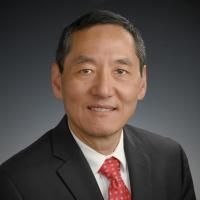Targeting androgen receptor-independent pathways in therapy-resistant prostate cancer.
Date
2019-01
Journal Title
Journal ISSN
Volume Title
Repository Usage Stats
views
downloads
Citation Stats
Abstract
Since androgen receptor (AR) signaling is critically required for the development of prostate cancer (PCa), targeting AR axis has been the standard treatment of choice for advanced and metastatic PCa. Unfortunately, although the tumor initially responds to the therapy, treatment resistance eventually develops and the disease will progress. It is therefore imperative to identify the mechanisms of therapeutic resistance and novel molecular targets that are independent of AR signaling. Recent advances in pathology, molecular biology, genetics and genomics research have revealed novel AR-independent pathways that contribute to PCa carcinogenesis and progression. They include neuroendocrine differentiation, cell metabolism, DNA damage repair pathways and immune-mediated mechanisms. The development of novel agents targeting the non-AR mechanisms holds great promise to treat PCa that does not respond to AR-targeted therapies.
Type
Department
Description
Provenance
Citation
Permalink
Published Version (Please cite this version)
Publication Info
Xu, Lingfan, Junyi Chen, Weipeng Liu, Chaozhao Liang, Hailiang Hu and Jiaoti Huang (2019). Targeting androgen receptor-independent pathways in therapy-resistant prostate cancer. Asian journal of urology, 6(1). pp. 91–98. 10.1016/j.ajur.2018.11.002 Retrieved from https://hdl.handle.net/10161/18631.
This is constructed from limited available data and may be imprecise. To cite this article, please review & use the official citation provided by the journal.
Collections
Scholars@Duke

Jiaoti Huang
I am a physician-scientist with clinical expertise in the pathologic diagnosis of genitourinary tumors including tumors of the prostate, bladder, kidney and testis. Another area of interest is gynecologic tumors. In my research laboratory we study prostate cancer, focusing on molecular mechanisms of carcinogenesis and tumor progression, as well as biomarkers, imaging and novel therapeutic strategies. In addition to patient care and research, I am also passionate about education. I have trained numerous residents, fellows, graduate students and postdocs.
Unless otherwise indicated, scholarly articles published by Duke faculty members are made available here with a CC-BY-NC (Creative Commons Attribution Non-Commercial) license, as enabled by the Duke Open Access Policy. If you wish to use the materials in ways not already permitted under CC-BY-NC, please consult the copyright owner. Other materials are made available here through the author’s grant of a non-exclusive license to make their work openly accessible.
